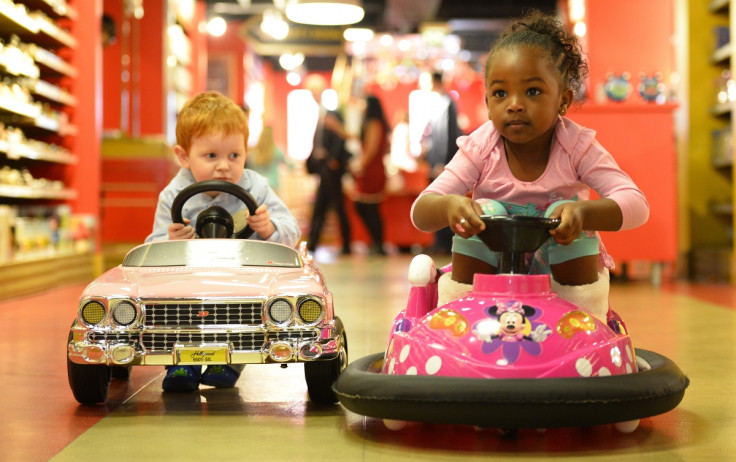Parents Spend £135m on Babies' First Christmas Even Though UK Poverty on the Rise

Celebrating the birth of their first child, cash-rich parents are splashing out an average of £166 in the UK on Christmas toys and presents.
In Britain, doting parents spend around £135m on gifts to commemorate their child's first Xmas, according to a survey by the Post Office.
Young parents are revealed as those most likely to part with their cash, with 18 to 24-year-olds buying £245 worth of presents.
Geographic location makes a difference, with Londoners spending the most at £328.50, while Belfast parents part with the least money, clocking up an average of £63.61.
New parents Chloe Renwick and Matt Lee-Cook have spent around £50 on their first baby Sebastien's first Christmas.
"He has managed to spend a lot of our money already," Matt Lee-Cook told Sky News
"I don't think he's going to feel the benefit of a material Christmas so we've got him a few little things, a few toys, nothing significant."
Ms Renwick said: "It's also the incidentals; all the things that we've bought around it. So he's had a high chair so he can sit with us at Christmas - that's not factored into his Christmas budget, so I suppose in total we've spent a lot more than that, just not specifically for Christmas."
Around 38% of parents are planning to put money aside in a savings account, with the average contribution at just under £100.
Most popular presents for a baby's first Christmas are teddy bears and soft toys. These are followed by interactive or educational baby games, baby clothes and Christmas-themed costumes.
However, the divide between rich and poor is growing, with the Organisation for Economic Co-operation and Development (OECD) stating that the richest 10% of society in the 33 OECD countries received 9.5 times that of the poorest in terms of income.
According to the Child Poverty Action Group, there are 3.5 million children living in poverty in the UK. This upward trend is expected to continue with 4.7 million children projected to be living in poverty by 2020.
© Copyright IBTimes 2025. All rights reserved.






















